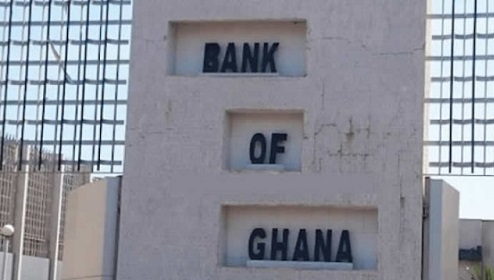The Central Bank has directed all financial institutions to incorporate a summary of lenders’ rights of enforcement of loan and collateral agreements in credit agreements.
According to the Central Bank, the directive is to improve disclosure during the lending process as well as promote and support the development of a fair, transparent, competitive and accessible credit market under Section 76 of Act 1052.
In a press release copied to Business Week, it read “The Bank of Ghana hereby directs all Banks, SDIs and NBFIs to incorporate in credit agreements a summary of lenders’ rights of enforcement of loan and collateral agreements in line with all repayment and recovery of debt provisions set forth under Sections 59 to 75 and other relevant sections of Act 1052.”
It further reminded Banks, Specialised Deposit-Taking Institutions (SDIs) and Non-Bank Financial Institutions (NBFIs) that the Borrowers and Lenders Act, 2020 (ACT 1052) provides for the rights and obligations of borrowers and lenders.
In the event that borrowers fail to meet their obligations set out under credit agreements, lenders have a right to enforcement under Act 1052. Sections 59-75 of Act 1052 specifically enumerate processes for recovery of debts owed to lenders, the release stressed.
Relevant provisions on repayment and recovery processes under Act 1052 include:
1. Notice in the event of Default (Section 60)
Where an event of default arises under a credit agreement, the lender shall give a notice of default to the borrower in writing and request the borrower to pay the amount due within thirty (30) days after the date of receipt of notice. However, where the collateral is perishable, the lender shall give a
notice of default in writing to the borrower and request the amount due immediately.
The lender may deliver the notice by
(i) hand personally;
(ii) courier service;
(iii) registered mail; or
iv) any other means agreed upon by the lender and the borrower in the credit
agreement.
2. Remedies of the Lender on Default by the Borrower (Section 61)
The lender upon satisfaction of the requirements under section 60, may (i) sue the borrower on any covenant to perform under the
credit agreement;
(ii) where a security interest is registered under Act 1052, realise the interest in
the collateral without initiating proceedings in court; or
(iii) appoint a Receiver or Manager to realise the security
interest on behalf of the lender.
3. Realisation without court order (Section 62)
A lender who intends to realise a security interest without a court order shall register a notice of that intention with the Collateral Registry Department of the Bank of Ghana.
Where all requirements have been met, the Registrar shall certify the realisation process by issuing a certificate known as the Memorandum of No Objection to the lender. The Memorandum of No Objection shall remain valid until a time when the collateral has either been sold, retained by the lender or redeemed by the borrower.
4. A Lenders’ Right of Possession (Section 63)
Where a security interest is realised in accordance with section 61(1)(b), the lender may take possession of the collateral or render the collateral unusable without removal.
A lender who has the right to take possession of property that is subject to a security interest may enforce that right without initiating proceedings in court for that purpose, and is not required to give notice to the borrower before repossessing or rendering the collateral unusable.
5. Realisation of collateral after default (Section 66)
Section 66(1) provides that, collateral may be realised either by auction, public tender, private sale or any other method provided for in the credit agreement
